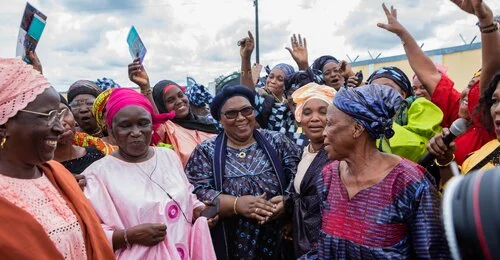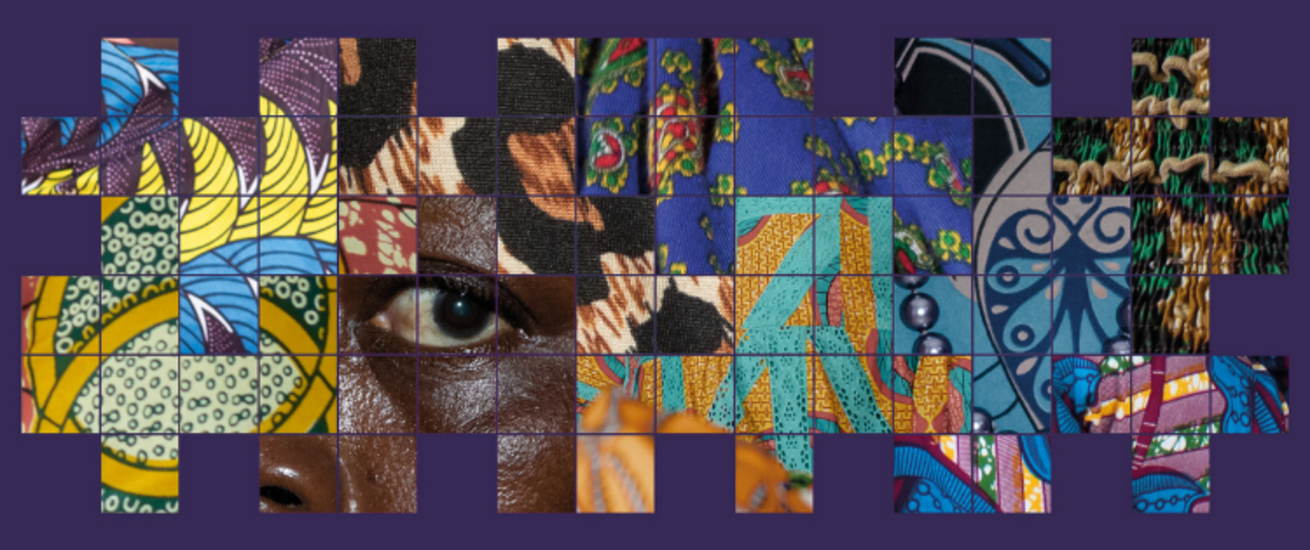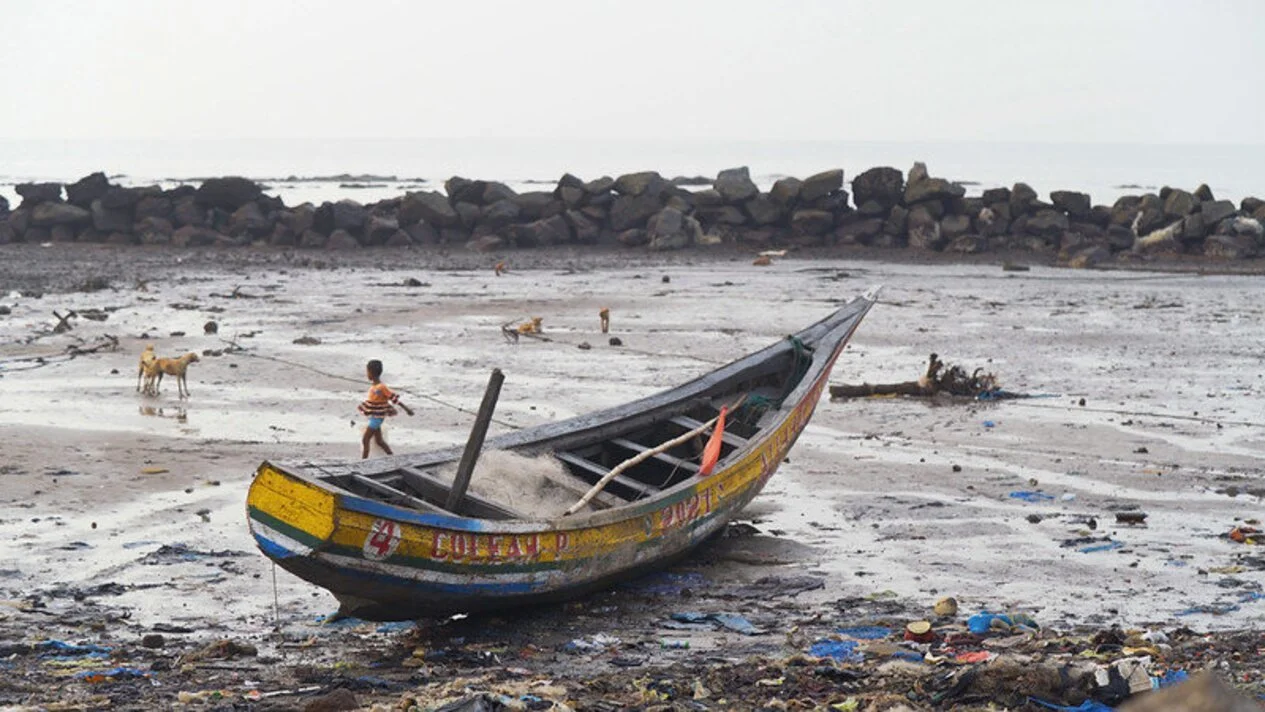Guinea
Two years later, a landmark judgment was delivered: former government officials, including president and junta leader Moussa Dadis Camara, were convicted by a national court for crimes against humanity, including sexual violence.
This historic decision marks the first time in Africa that a national judiciary has held former high-ranking officials accountable for crimes committed against their own citizens. Following the judgment, a presidential pardon was granted for Camara, sparking significant public debate. Nevertheless, the convictions represent a major step forward in the fight against impunity in Guinea and the broader African context.
I testified. It was not easy to speak to a judge and tell my story. But I was supported in doing so. I dared to do it.
— Oumou Barry, Survivor of 28 September
2019
160
1
LOCATION
Interim reparative measures co-created with survivors
Guinea was the site of our first interim reparative measures project in 2019. More than 100 survivors took part in the project, which ended in 2023.
Interim reparative measures co-created with survivors:
1
Survivors' centre;
2
Financial compensation for education or a housing project;
3
Medical care;
4
Pschological support;
5
A collective memory book;
6
Financial management training.
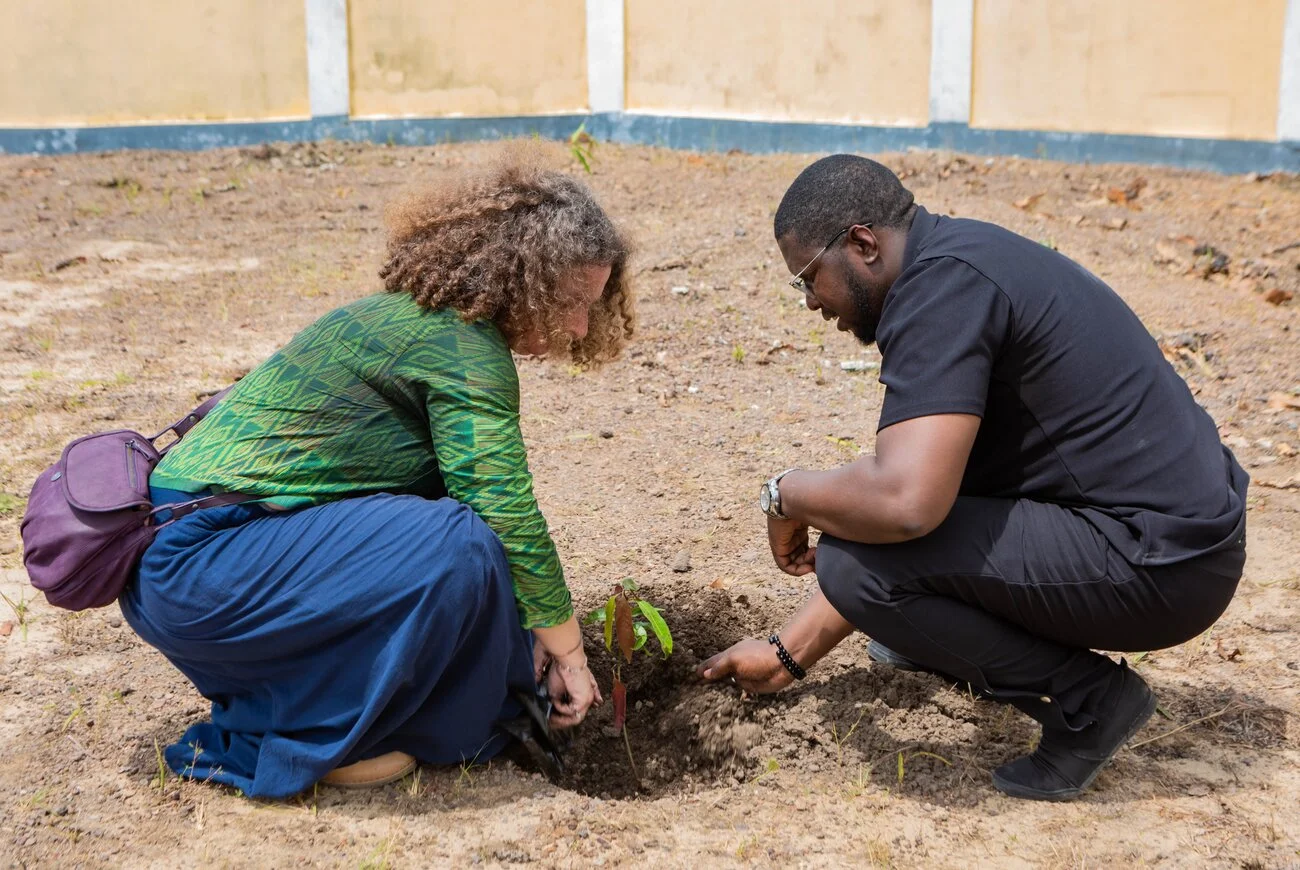
The project left a lasting impact on survivors and their families. Participants reported significant improvements in their quality of life, with many feeling physically healthier, more confident, and more hopeful about their future. Survivors also said the measures helped them prepare for the criminal trial, during which some testified and directly faced their abusers.
A full impact report is due to be published later in 2025.
From pilot project to national policy
Our pilot laid the groundwork for broader, national-level efforts. Survivors involved in the project, together with their legal counsel and local partners OGDH and AVIPA, played a key role in drafting a new reparations law. The then-justice minister requested our technical expertise and lessons learnt from the pilot to inform the law, and the national Steering Committee model was adapted to a wider context, ensuring survivor participation and leadership.
The draft law now awaits adoption by the government. It is aligned with international standards and reflects the lived experiences and needs of survivors. Importantly, the law addresses all serious human rights violations, broadening its reach beyond conflict-related sexual violence. This represents a major achievement: for the first time, Guinea is poised to establish a national reparations programme, shaped by survivors and tailored to their needs.
Survivor testimonies from Guinea
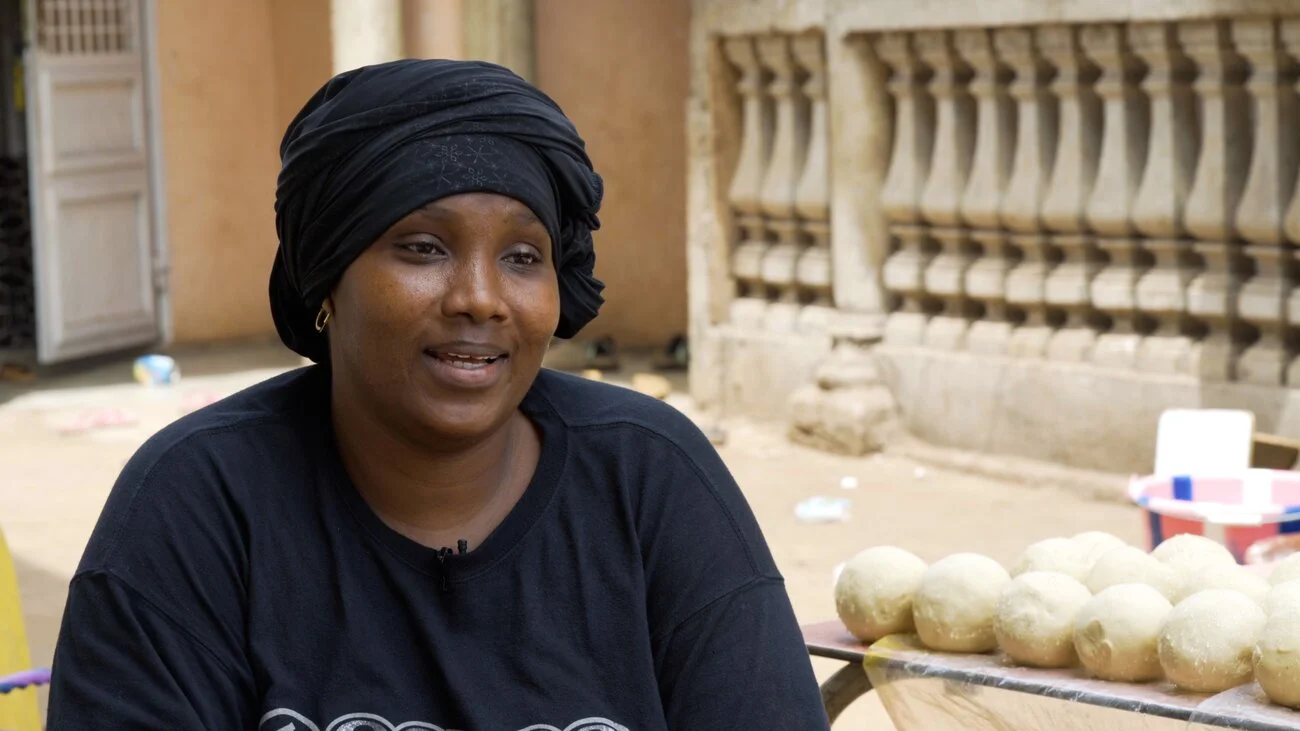
“Before 28 September I was selling rice at the market. I was with my husband. After I went to the stadium, I had health problems and we divorced. I had no one to support me. The money I had saved up from selling rice was used to go to the hospital. My situation was critical. I suffered a lot.
With the reparation money, I bought equipment and now I make soap. The soap is well made, people have said “Hey! Your soap is good!”. Now I have apprentices and I want a big space. I’m confident about my work.
What I would tell other women is to have courage. I protested for a change in my country. I’m not discouraged.”
– Dolanda
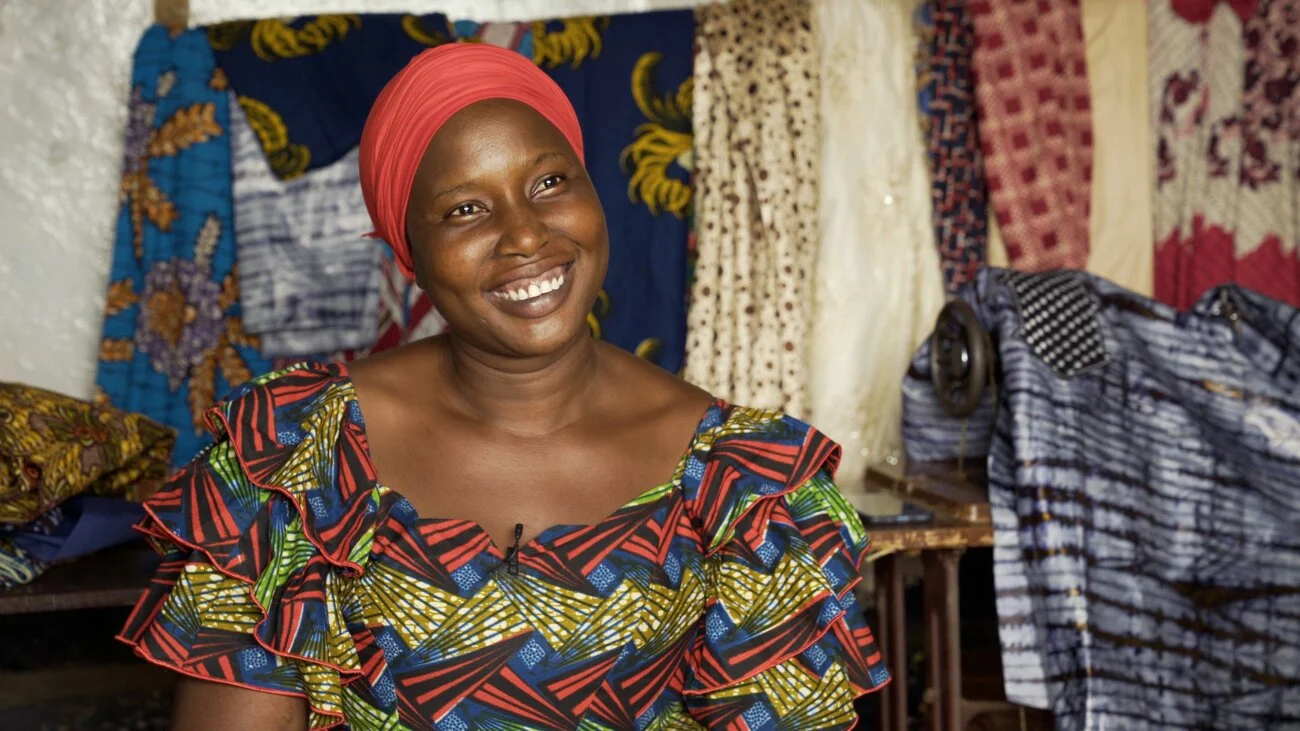
“There was a time of one or two months, when I closed my eyes I would see people getting raped and killed in front of me. Honestly, what I saw there, it tore my heart apart.
I’ve liked sewing since school. I studied until the fifth grade and then I stopped going to school. After the fifth grade, I told my uncle I wanted to open a sewing shop. The day after receiving the compensation, I called the salesman and asked him to send me an embroidery machine. Embroidery is really important, it brings me a lot of clients. When something is embroidered it has value, you can see that when someone wears it .
Really, there is a lot of change. I’m working and I earn a salary. And on top of that, I don’t waste what I earn.”
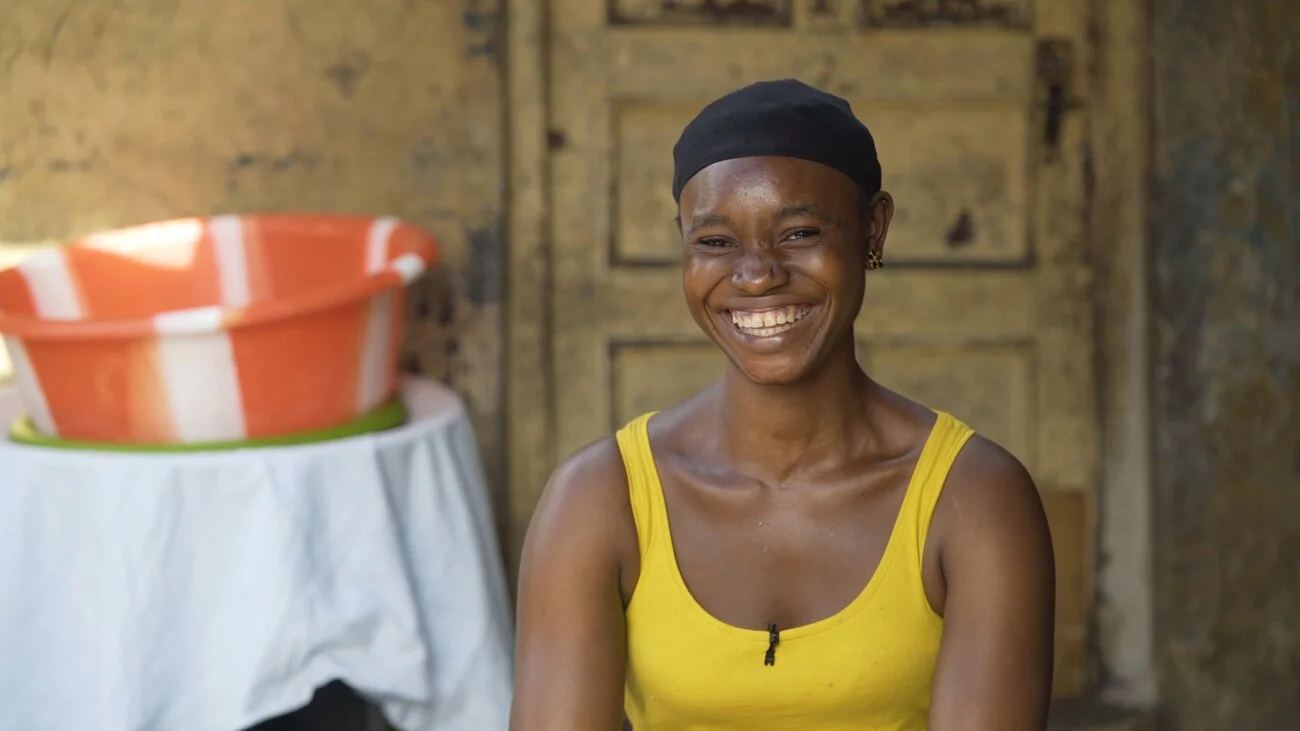
“Since the events, I had been walking with my head down. Some people criticised me and said, ‘You went to the stadium to make trouble.’ I was alone and ashamed. I had no more friends and I stayed home. But I found the strength, and I held out. Then, I received the money.
With the money I received from the reparations I bought a freezer, I fixed up my home, I paid my children’s school fees. I started making candy out of kantini, bissap, and ginger.
I have seen a difference since the reparations. When I get dressed and go out, people approach me. Those people who criticised me and said bad things about me, now they approach me. They say nice things about me. There’s been a change.”
More from Guinea
